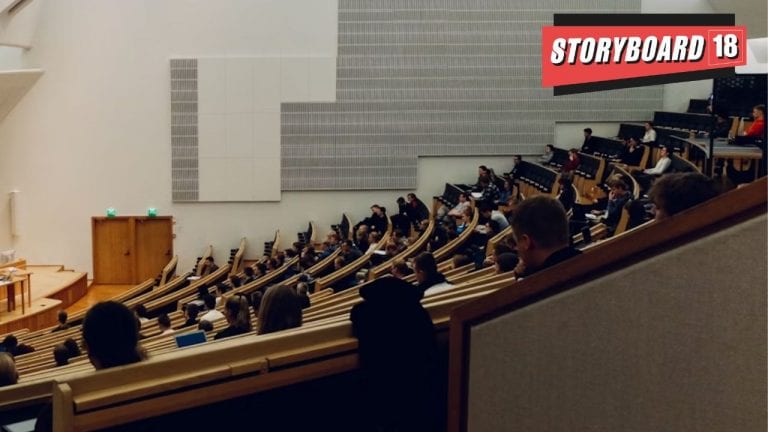


The placement season for the 2023-24 batch is set to be completed by July-end across all mass communication institutes but the daunting number of unplaced students and low remuneration highlight the grim reality of the job market in the media and entertainment industry. In the Indian Institute of Mass Communication (IIMC), of around 500 students, roughly 160 students got jobs during the 21-day placement cycle across its six campuses this year, students told Storyboard18, requesting anonymity.
A journalism student said that only a handful of mainstream media companies participated during the placement cycle in IIMC Delhi, while the major recruiters were from the advertisement and PR industry. Another aggrieved student from IIMC, who got the job off campus said the salary packages are so low that they are not keeping up with inflation.
“The packages for Hindi media students are lower than (those of) English media. For Hindi media, freshers are being offered around Rs 3.5 lakh LPA on an average, while English media offers between Rs 4.8 lakh and Rs 5 lakh LPA plus bonus,” the student said.
Most students who want to pursue journalism as their career said they were not relying on campus placements but reaching out to the networks that they built during the internship period. This year, IIMC mandated its students to complete a one-month internship before sitting for the campus placement, starting on June 5.
According to specialist staffing firm Xpheno, 187 students from IIMC got jobs during campus placements in 2021, with an average package of Rs 4.5 lakh. At that time, the highest package was Rs 8.5 lakh. In 2022, as many as 320 students earned full-time jobs on an average package of Rs 4 lakh.
On the other hand, this year, news agency company Reuters hired five people for its Bengaluru office with an annual package of Rs 6 lakh, an IIMC student, who wished not to reveal his identity, told Storyboard18. Notably, Prasar Bharti took the lead in the recruitment process in the government-run institute. The public broadcaster, headquartered in New Delhi, hired 50 students for a year’s internship, offering Rs 25,000 monthly.
An educator said that students appearing during the placement cycle in IIMC have declined in the past two years as the companies have reduced their CTCs. Besides, incidents of students from other campuses using ChatGPT during exams hurt the placements. According to data from talent platform foundit, the average minimum package in the media and entertainment industry for freshers has declined by 11.17 percent from Rs 4.6 lakh 2021 to Rs 4.08 lakh in 2024. The average maximum remuneration also saw a dip of nine percent from Rs 7.47 lakh in 2021 to Rs 6.79 lakh in 2024. On the other hand, the average minimum freshers packages in the advertisement, PR, MR, and event management have seen a marginal rise of 7.6 percent from Rs 3.32 lakh of LPA in 2021 to Rs 3.58 lakh of LPA.
Data by talent platform foundit
Shantanu Rooj, Founder and CEO of TeamLease Edtech said that the media industry is currently experiencing a period of consolidation, where companies are reassessing their business models and operational efficiencies in response to evolving consumer behaviours. Such realignments often result in a “temporary slowdown in hiring”.
Additionally, Rooj said, “Economic uncertainties and budget constraints have also played a role, leading to cautious hiring practices. The impact of generative AI and automation has further altered job roles, which has contributed to the cautious hiring approach”.
A student from Amity University told Storyboard18 that out of the 300 graduates, around 40 people were hired by media organisations but for sales and marketing roles.
Dr Charulata Singh, Dean at Vivekananda School of Journalism and Mass Communication, explained the changes in the job landscape in the media industry. She said, “The jobs such as reporting, and TV anchoring in mainstream media are gradually diminishing and companies are hiring for content writing roles, PR and communications, marketing, and social media manager among others”.
Professor Kalyan Arun, Placement coordinator at the Asian College of Journalism (ACJ), acknowledged the gradual decline in campus placements in all top bellwether media institutes. However, the professor said that over 95 percent of ACJ students got full-time jobs during this year’s placement cycle and more interviews are scheduled in the coming days. The placement cycle started in the last week of April and concluded in the second half of May. “Mainstream media organisations such as The Hindu, The New Indian Express, Hindustan Times, The Indian Express, and others visited our campus and hired a minimum of 10 people and a maximum of 25 people. I am sure by July-end, we will achieve 100 percent placements this year”. The students in ACJ were offered between Rs 5 lakh to 6 lakh LPA this time, Arun added.
Dr Charulata recommended that students should be equipped with writing and production skills as several job roles may get merged in the future. “One should be good in writing content, as well as, understand camera handling and editing videos for long-term success,” the professor added.
Rooj from TeamLease Edtech also said that upskilling is paramount in the media industry to keep pace with rapid technological advancements and changing consumer preferences. “Key areas for upskilling include digital content creation, data analytics, AI-driven content personalisation, and social media strategy,” Rooj added. For Rooj, the outlook for the media industry in the second half of 2024 (July-December) appeared cautiously optimistic, particularly for roles that blend creativity with technological proficiency.
Sekhar Garisa, CEO of foundit said that there is a growing emphasis on data-driven decision-making in the media sector. This shift is creating numerous opportunities for graduates who possess skills in media analytics and market research. “There is an increasing demand for professionals skilled in digital marketing, social media management, content creation, and video production,” Garisa added.